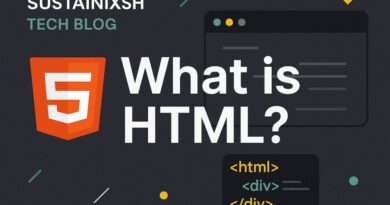Embracing the Power of Attributes (PHP 8.x)
Level Up Your PHP: Embracing the Power of Attributes (PHP 8.x)
PHP, the ever-evolving workhorse of the web, took a significant leap forward with PHP 8.x, introducing a game-changing feature: Attributes. If you’re still relying solely on docblock annotations for metadata, it’s time to discover how native PHP Attributes can revolutionize your code, making it cleaner, more robust, and incredibly powerful.
What are PHP Attributes? Beyond the Docblock
For years, PHP developers have used “annotations” – special comments within docblocks (like /** @Route("/users") */) – to add metadata to classes, methods, and properties. While functional, this approach had its limitations. It was essentially a “hack” built on top of comments, requiring libraries to parse and interpret them. This led to inconsistencies, potential errors, and less-than-ideal performance.
Enter PHP Attributes. Introduced in PHP 8.0, Attributes are first-class language constructs that provide a structured, syntactic way to attach metadata directly to your code elements. Think of them as super-powered labels that PHP itself understands and can act upon.
Instead of:
PHP
/**
* @Route("/api/products", methods={"GET"})
*/
class ProductController
{
// ...
}
You now write:
PHP
use App\Attributes\Route; // Or your framework's Route attribute
#[Route("/api/products", methods: ["GET"])]
class ProductController
{
// ...
}
Notice the elegant #[...] syntax. This isn’t a comment; it’s a part of the code, bringing metadata definition into the core language.
Why Should Every PHP Developer Care About Attributes?
The shift from docblock annotations to native Attributes isn’t just about a syntax change; it’s about unlocking a new level of code quality, maintainability, and development efficiency.
Here’s why Attributes are a must-have in your modern PHP toolkit:
- Cleaner, More Readable Code: Attributes reduce boilerplate. No more cluttered docblocks mixing human-readable comments with machine-readable metadata. Your comments can now truly be for documentation, while Attributes handle the structural data. This significantly improves code clarity and makes your classes, methods, and properties easier to understand at a glance.
- Native Language Support & Performance: Because Attributes are a native PHP feature, they are parsed at compile-time, not runtime. This means improved performance compared to traditional annotation parsing, especially in complex applications with extensive metadata. The PHP engine understands Attributes directly, leading to more efficient processing.
- Enhanced Type Safety & Validation: Attributes can accept arguments, just like class constructors. This means you can enforce type constraints on the metadata itself. Frameworks can leverage this for built-in validation rules, ensuring that your metadata is correctly structured and prevents common errors before your code even runs. This boosts application reliability and reduces debugging time.
- Superior IDE Support: Modern IDEs (like PhpStorm) offer excellent support for PHP Attributes. You get autocompletion, syntax highlighting, and immediate error feedback as you define attributes. This dramatically improves the developer experience and accelerates coding.
- Framework Integration & Extensibility: Leading PHP frameworks (Symfony, Laravel, Doctrine ORM, etc.) are rapidly adopting Attributes to replace their annotation systems. This streamlines configuration, simplifies routing, defines ORM mappings, and manages validation rules directly within your code. Attributes empower you to create highly extensible and declarative APIs and systems.
- Programmatic Access with Reflection API: Attributes are fully accessible via PHP’s powerful Reflection API. This allows you to dynamically inspect and interact with the metadata at runtime. Build powerful tools, code generators, and dynamic behaviors based on the attributes defined in your codebase.
Practical Use Cases: Where Attributes Shine
The possibilities with PHP Attributes are vast. Here are some common and impactful use cases:
- API Routing: Define API endpoints and HTTP methods directly on your controller methods.
- Data Validation: Attach validation rules to model properties to ensure data integrity.
- ORM Mappings: Map database columns to class properties, defining relationships and field types.
- Dependency Injection: Mark services for automatic injection or define specific injection points.
- Event Listeners: Indicate which methods should respond to specific events.
- Serialization/Deserialization: Control how objects are converted to and from data formats (JSON, XML).
- Security & Access Control: Define roles or permissions required to access certain methods.
- Caching Directives: Specify caching strategies for particular endpoints or data.
Embracing the Future of PHP Development
PHP Attributes are more than just a new syntax; they represent a fundamental shift towards a more expressive, robust, and maintainable PHP ecosystem. By moving metadata from comments into first-class language constructs, PHP 8.x empowers developers to write cleaner, more performant, and more intelligent applications.
If you haven’t yet explored Attributes in PHP 8.x, now is the time to dive in. Your code, your team, and your future self will thank you for embracing this powerful modern PHP feature.



